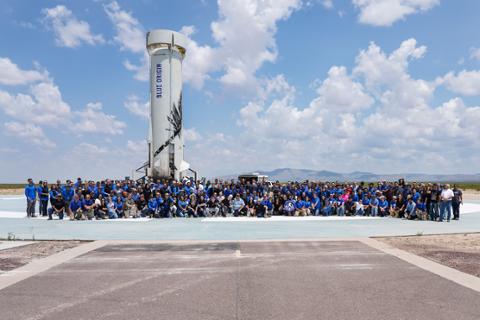
The interview process for software engineers often consists of several rounds of technical interviews over many months. Software development is an in-demand job with a long interview process, all meant to help hiring managers understand who might be the best fit for their team.
In technical interviews, hiring managers will query job seekers on general technical proficiency with programming languages, but also things like system design. Having a well-rounded technical skillset is a key component for software engineers and hiring managers will work to identify how your skillset matches their needs.
Preparation is crucial, too. Being prepared for your software engineer interview often involves a dive into the technologies the company is using, so it’s best to brush up on their tech stack as best you can; not knowing how key platforms or vital APIs work can ultimately damage your candidacy.
Keep this in mind: These days, hiring managers aren’t likely to ask you to reverse a linked list or create a palindrome checker on a whiteboard—at least, not right off the bat. For example, Patrick Shyu, tech lead and founder of mentoring site Tech Interview Pro, intentionally keeps his questions broad to give candidates the chance to reveal their strengths. Those answers determine whether you move to the next stage, long before any whiteboard test.
Summary
- How are Coding Interviews Conducted at Top Tech Companies?
- Proficiency in Programming Languages is Key to Success
- “Describe a particularly hard or interesting project you have delivered.”
- “You’re the only person on call, when you receive a vague report that the company’s website is running slowly. What do you do?”
- “What is your favorite software development process and why?”
- “Here are some basic requirements and rules. Walk me through how you would go about creating a matching game.”
- “Given a colored grid, how would you find the maximum number of connected colors?”
- “What is a baseline in software development?”
- “Define debugging and its role in optimizing software projects.”
- “Why do you want to work here?”
- Conclusion
How are Coding Interviews Conducted at Top Tech Companies?
FAANG companies (Facebook, Amazon, Apple, Netflix, Google) and other large tech firms such as Microsoft are known for their rigorous and structured coding interview processes. While each company may have slight variations in their format, there are common elements that appear across these interviews. One key similarity is the heavy emphasis on problem-solving skills, particularly focusing on algorithms and data structures. Candidates are expected to demonstrate a deep understanding of concepts like arrays, linked lists, hash tables, stacks, queues, trees, graphs, and algorithms like sorting, searching, and dynamic programming. The ability to apply these efficiently to solve real-world problems is critical.
Another commonality is the use of live coding challenges, where candidates are given a problem and must solve it within a set timeframe, typically using a whiteboard or a collaborative online editor. These problems often test not only a candidate's technical abilities but also their clarity of thought, communication skills, and how they approach debugging or optimizing their solutions. Companies are looking for candidates who can write clean, efficient code and explain their reasoning and problem-solving approach clearly.
System design interviews are also a frequent part of the process, particularly for more senior roles. In these sessions, candidates are expected to design large-scale, distributed systems, focusing on scalability, performance, and fault tolerance. These challenges test not only technical expertise but also the ability to think critically about trade-offs in design choices. Ultimately, FAANG companies value strong fundamentals in algorithms and data structures as a foundation for success in their fast-paced, innovative environments.
Alex Vasylenko, founder and CEO at The Frontend Company, says: “FAANG interviews typically consist of several rounds, ranging from four to six. These include an initial technical screening, which is often a coding challenge or phone interview, followed by on-site or virtual interviews with multiple rounds focused on algorithms, data structures, and system design. There may also be behavioral interviews, where the focus shifts to understanding how you work under pressure, collaborate with others, and solve problems creatively.”
FAANG companies have thousands of software engineers, and are far more conscious to hire those who have rock-solid fundamental skills. Knowing all you can about algorithms and mastering coding challenge problems are a fast-track to matriculating through the tedious interview process.
Proficiency in Programming Languages is Key to Success
You probably won’t have full mastery of every aspect of any programming language, but being as proficient as possible will earn you points in an interview setting. If you encounter a roadblock while working in Python, for example, hiring managers will notice that you try several solutions, even if you don’t ultimately find one.
Widely popular languages like Python, JavaScript, Java, and C-based languages are often in-use at these companies. These companies have huge codebases teeming with these languages. Knowing their intricacies is valuable.
In the interview, your knowledge of languages will be tested, as will your understanding of system design while implementing code. “Spaghetti code” is a thing of the past; employers want to know you understand standard library upkeep and implementation.
With that in mind, here are some examples of questions you may be asked in a software engineering interview, as well as the best ways to respond.
“Describe a particularly hard or interesting project you have delivered.”
Hiring managers are interested in knowing the project elements you think are significant, and how you deal with challenges, overcome obstacles, and learn from mistakes.
Good candidates don't waste time. The well-organized technologists come armed with compelling stories to steer the conversation. An unprepared candidate, on the other hand, will either fumble the question or fail to explain adequately how they worked through a challenge. “It’s a communication test of sorts,” says consulting CTO Chuck Groom.
For example, can you display your technical expertise without getting lost in the weeds? Can you break down your workflow and the role you played in delivering results? You’ll get bonus points for highlighting transferable lessons that will benefit a new company or teaching the interviewer a new best practice or technique.
“I’m looking for ‘we’ stories because I don’t want to hire a lone wolf who badmouths the rest of the team,” Groom adds. Software engineering is a team sport.
“You’re the only person on call, when you receive a vague report that the company’s website is running slowly. What do you do?”
Hiring managers want to assess your ethos as well as your aptitude. They expect you to know how to troubleshoot and resolve a problem that impacts the customer experience and the bottom line, even if it’s not something you deal with every day.
Explain how you would find the source of the problem while highlighting your knowledge of production infrastructure. Make sure to take ownership of the problem because that’s the sign of a capable, competent, responsible person.
“What is your favorite software development process and why?”
Whether you prefer Agile, Waterfall or a hybrid development process, choosing the right one can make a dramatic difference in the success or failure of a project.
Hiring managers such as principal software engineer David Granado are interested in knowing why you and your teammates selected a particular model, and what worked (and didn’t work) as a result. Did you propose changes to the process, and if so, why? Most importantly, how did the process and its philosophy impact the way you interacted with colleagues, negotiated and resolved conflicts, and collaborated with customers?
“The top candidates focus more on the human element than the technology element, and they use a conversational style to convey their opinions and experiences,” Granado says.
“Here are some basic requirements and rules. Walk me through how you would go about creating a matching game.”
Many hiring managers use a mini simulation to see how you’d think through real projects and tasks. They also leave out some details out or make them intentionally vague to see if you will engage and clarify critical information before proceeding.
Describe the process you would use to begin building the game, keeping architecture and scalability in mind from the start. Remember that what separates junior from highly marketable intermediate and senior-level engineers is the application of firsthand experience, along with the soft skills and practices that lead to great collaboration.
“Given a colored grid, how would you find the maximum number of connected colors?”
There are many ways to solve this problem, none of which are particularly tricky or require an “a-ha!” moment, Shyu points out. Rather, you can solve it using iteration or recursion, and it requires data structures such as hashmaps and arrays.
The best way to answer these questions is with humble confidence and speed, which demonstrates mastery. For example, a strong candidate will talk through the solution using Big O time-space analysis. They will say with assertiveness: "It is quadratic. This is why..."
A top performer will also give two to three solutions and provide justification for why one solution is better, all while leaving enough time for follow-up questions (such as requests to write an alternate version).
Poor candidates, on the other hand, begin coding right away. When asked for time-space analysis, they may answer correctly but without confidence and no strong explanation. No hiring manager wants to hear a lack of confidence from a supposed expert.
“What is a baseline in software development?”
A baseline in software development is a reference point or benchmark that represents the state of a project at a specific point in time. It serves as a foundation for measuring progress, identifying deviations, and making informed decisions throughout the development process.
In the context of Agile methodologies, baselines are often established at the beginning of each iteration or sprint. These baselines define the scope, features, and goals for that particular development cycle. By setting a clear baseline, teams can track progress, identify potential risks, and make necessary adjustments to stay on course.
From a project management perspective, baselines are essential for monitoring and controlling project performance. They provide a framework for measuring progress against established goals, identifying variances, and taking corrective actions as needed. Additionally, baselines can be used to assess project health, evaluate resource allocation, and make informed decisions about project scope and timeline.
Within the software development life cycle (SDLC), baselines play a crucial role in various phases. During the planning phase, baselines are established to define project scope, requirements, and deliverables. In the development phase, baselines are used to track progress, manage changes, and ensure adherence to quality standards. Finally, in the maintenance phase, baselines serve as a reference point for evaluating the effectiveness of updates, patches, and bug fixes."
Or as Vasylenko puts it: “Baseline in software development refers to a fixed reference point in the software's lifecycle. It is essentially a snapshot of the system at a given time, usually marking a stage where all features and changes have been integrated and tested, making it stable and ready for release or further work. This baseline can then be used as a starting point for future development or testing phases, ensuring that any changes made can be tracked against this stable version.”
“Define debugging and its role in optimizing software projects.”
"Debugging is the process of identifying and resolving errors or defects in software code. It involves systematically analyzing and testing code to locate the root cause of issues and implement corrective measures.
Effective debugging is crucial for optimizing software projects by ensuring code quality, improving performance, and enhancing user experience. By identifying and fixing bugs early in the development process, developers can prevent potential issues from escalating and avoid costly rework. Additionally, debugging helps to maintain code stability and reliability, reducing the risk of system failures and downtime.
To be a successful debugger, one must possess strong problem-solving skills. This includes the ability to:
- Break down complex problems into smaller, manageable components: This helps to isolate the root cause of issues and develop targeted solutions.
- Think logically and systematically: Debugging often requires a methodical approach to analyze code, identify patterns, and trace the flow of execution.
- Use debugging tools effectively: Familiarity with debugging tools and techniques is essential for efficiently locating and resolving errors.
- Ask the right questions: Effective debuggers are able to ask probing questions to understand the context of issues and identify potential causes.
- Test thoroughly: Rigorous testing is essential to ensure that bugs have been fully resolved and that the corrected code does not introduce new problems."
As Vasylenko notes: “Debugging involves systematically testing the code, using tools such as breakpoints or log statements to track down where the logic goes wrong. Debugging requires a keen eye for detail, patience, and often a deep understanding of the system's behavior, as it might involve navigating through large codebases or third-party libraries to isolate the issue.”
In an interview setting, debugging exercises or questions are an indicator of your problem-solving skills. Employers want to know you have the patience and determination to solve problems, and the humility to express when you’re unsure of how to proceed. It’s less about rushing to a solution as it is showcasing that you’ll be a good partner to teammates.
“Why do you want to work here?”
Here are some key points to remember when crafting your answer:
- Research the company: Demonstrate your knowledge of the company's history, mission, values, and recent achievements.
- Highlight specific aspects: Identify particular aspects of the company that resonate with you and explain why.
- Connect to your career goals: Explain how working at the company aligns with your professional aspirations.
- Showcase your skills and experience: Briefly mention how your qualifications can contribute to the company's success.
- Be genuine and enthusiastic: Let your passion for the company shine through in your answer.
By tailoring your response to the specific company and demonstrating your genuine interest, you can effectively answer this common interview question and increase your chances of landing the job.
Again, it’s critical to align your response with company goals and values as best you can. Job descriptions will often hint at interesting objectives or goals, so be sure to reference those lines if applicable.
Conclusion
When preparing for a technical interview, do your diligence to discover what technologies are in use. The job description likely notes languages you’ll need to know, but a poke through GitHub may give you an understanding of what other technologies the company is using. Moreover, FAANG companies often publish blog posts documenting how and why they are using interesting new APIs, languages, or other implementations.


